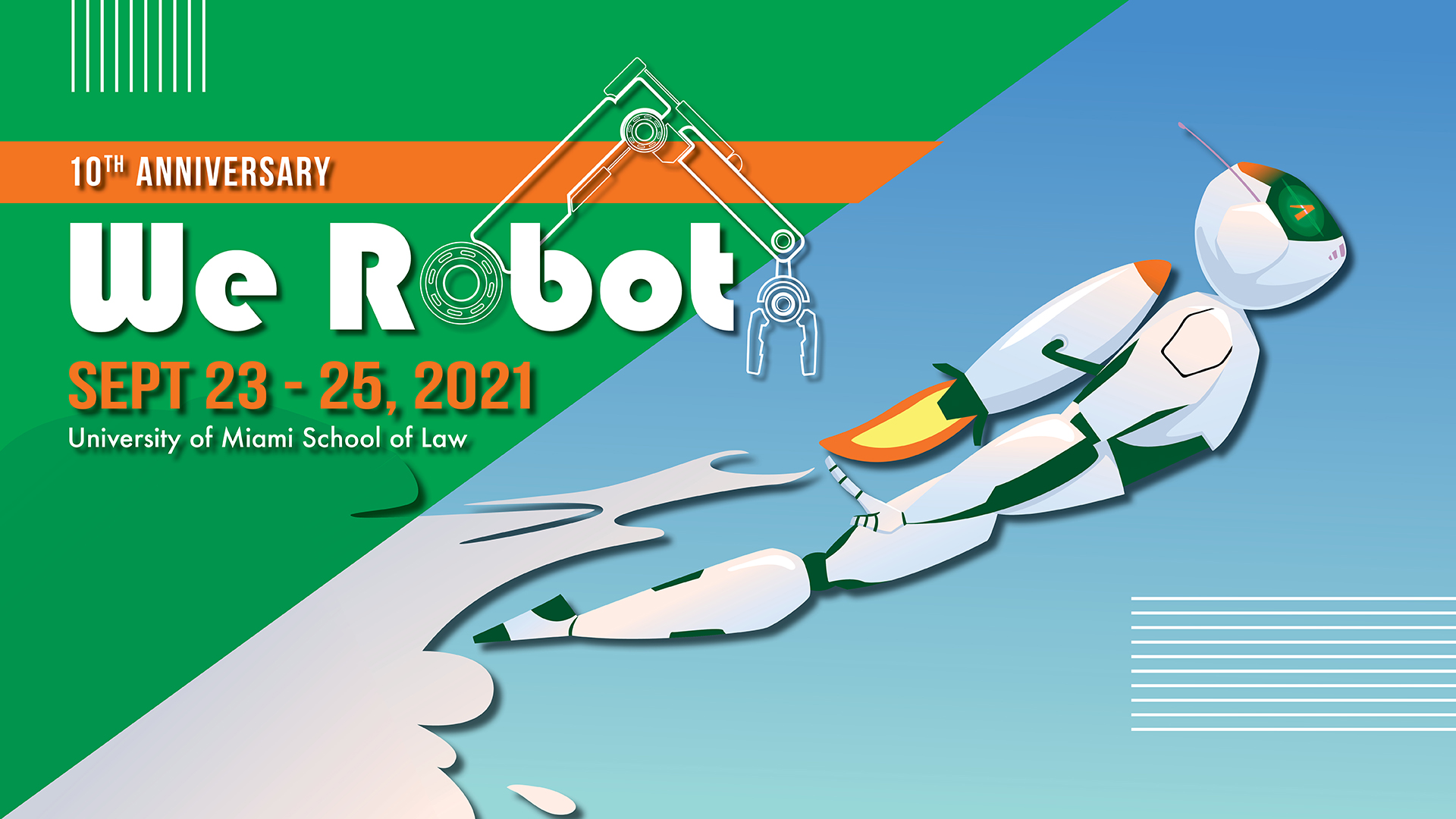
Kelly Bergstrand
Kelly Bergstrand, Jess Findley, Christopher Robertson, Marv Slepian, Cayley Balser, and Andrew Woods will present their paper, Diverse Patient Perspectives on the Role of AI and Big Data in Healthcare, on Saturday, September 25th at #werobot 2021. Michelle Johnson will moderate the 4:30pm – 5:30pm panel on Health Robotics.

Jess Findley
Artificial intelligence and big data (AIBD) are being used to find tumors in chest images, to regulate implanted devices, and to select personalized courses of care. Such new technologies have the potential to transform healthcare. But it is also unclear how these technologies will affect the doctor-patient relationship.

Christopher Robertson
Prior research suggests that patients’ trust in their physicians is an essential component of effective healing, but research also shows lower trust among Black, Hispanic, and Native American patients. Moreover, prior research suggests broad public skepticism about computer agents, which appears especially salient in under-served and marginalized communities. These groups may be concerned that the AIBD systems will be biased against them, however research also shows race biases amongst human providers.

Marv Slepian
Ultimately, patient bias against computer-aided decisions may cause adverse health outcomes, where automated systems are actually more accurate and less biased. These facts could make effective disclosure of AIBD’s role in treatment material to securing patient consent and especially so with diverse patient populations. Our study examines diverse patient populations’ views about automated medicine. Our project has qualitative and quantitative phases. In the qualitative phase, we have conducted structured interviews with 20 patients from a range of racial, ethnic, and socioeconomic perspectives, to study understand their reactions to current and future AIBD technologies.

Andrew Woods
For the quantitative phase, we have purchased a large (n=2600) and diverse sample of American respondents from YouGov, with oversampling of Black, Hispanic, and Native American populations in particular.

Cayley Balser
Our randomized, blinded survey experiments place respondents as mock patients into clinical vignettes, and manipulate whether the physician uses AIBD for diagnosis or treatment of the patient’s condition, whether that fact is disclosed, and how it is communicated to the patient. Importantly, we manipulate the distinction between the physician deferring to versus relying upon (and potentially overriding) the AIBD system.

Michelle Johnson (moderator)
Our findings will be useful for the development of theory-based and evidence-driven recommendations for how physicians and patients might integrate AIBD into the informed consent process. We suspect that the era of AIBD may change what it means to be a human physician, as expertise gives way to an ambassadorial function, between the human patients and the expert systems.
